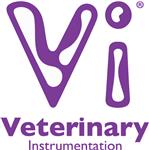
Key Information
CPD Hours: 12 hours (4 hours for the recorded webinars and 8 hours for the practical day)
Course Length: See above
Course Format: Practical sessions using cadaver material and plastic bones plus four hours of recorded webinars to be viewed before the onsite course
Enrol Now
This course may run again in the future. To register your interest please contact us.
Alternatively you can download and email using our Registration Form
Course Information
- Instrumentation and types of plates
- Understanding the principles of internal fixation
- Preoperative planning
- Management of the most common complications
- Types of External fixators and principles of their application
- Practical experience repairing a range of fractures using plates and screws and external fixators
Do you want to enhance your clinical practice by tackling some of the more straightforward fractures, but are not confident about how to proceed? This highly practical hands-on course will give you the confidence to take that next step.
This course of recorded webinars will be followed by an all-day practical giving you the opportunity to practise surgical techniques on synbones and cadavers. The webinars will cover the theory, and provide the necessary background for disease diagnosis and technical aspects required for the practical day. The onsite practical part of the course will give you the opportunity to put the theory into practice and develop your surgical skills in both internal fixation using plates and screws and external fixation techniques. The course will focus on the most commonly used plates and the use of lag screws, and the application of different types of linear external skeletal fixators.
This course consists of recorded webinars and a day of practical sessions. Please note: The online lectures are a pre-requisite for attending the onsite day (these will be available to view approximately 4 weeks prior to the practical day). These lectures allow you to learn at your own pace and can be listened to at a convenient time. This allows delegates to have more time once onsite for practical, hands-on teaching sessions. On the practical day, the tutors will be happy to answer questions relating to the online lectures, however to get through everything planned for the practical day, they will not be able to cover the content in the same level of detail as the online lectures. It is therefore imperative that all lectures are viewed in advance of attending.
Why do this course?
The course would be of interest to any recent graduate looking to develop their confidence in basic fracture repair, as well as veterinarians wishing to refresh their knowledge and understanding of the principles of this fixation technique.
Lecture programme (recorded webinars):
- Introduction to fracture healing
- Introduction to internal fixation
- Implants and biomechanics of internal fixation
- Introduction to external fixation
- Implants and biomechanics of external fixation
- Fracture planning
- Complications of fracture repair
Practical programme:
Internal fixation AM
- Placing a positional and lag screw dry lab
- Application of a plate and screws in compression dry lab
- Humeral condylar model fracture repair
- Cadaveric radius and ulna fracture repair with compression plate wet lab
- Cadaveric femoral oblique fracture repair with lag screw wet lab
External fixation PM
- How to placed an external fixator dry lab
- How to augment the biomechanics of the fixator dry lab
- Comminuted tibial fracture repair with external fixator
- Comminuted humeral fracture repair with external fixator and intramedullary pin
Anna Frykfors von Hekkel, BVetMed(Hons) PGDipVCP MVetMed PGCertVetEd DipECVS FHEA MRCVS
Lecturer in Small Animal Surgery
The Royal Veterinary College
Richard Meeson, MA VetMB PhD MVetMed DipECVS PGCertVetEd FHEA FRCVS
Professor of Orthopaedic Surgery and Head of Orthopaedics
The Royal Veterinary College
Relevant CPD courses you may find of interest
Introduction to orthopaedic surgery
Arthroscopy of the elbow and shoulder
Abdominal surgery – the essentials
The trauma patient – a global approach to case management
Laparoscopic surgery for small animal vets
Webinar Plus: Clinical governance - quality improvement and fostering a supportive practice culture
Webinar Plus: Master how to thrive (not just survive) in veterinary practice
Webinar Plus: Anthrozoology for veterinary professionals
Webinar Plus: A coaching approach to line management and leadership in the veterinary workplace
A coaching approach to personal and team leadership
Webinar Plus: Supporting students in practice – diving deeper into clinical coaching and mentoring
Webinar Plus: Journal club with critical appraisal of the veterinary literature
Webinar Plus: Journal club - basic statistics for busy clinicians
Webinar Plus: Supporting animals and caregivers with end-of-life care


